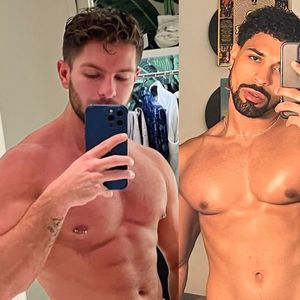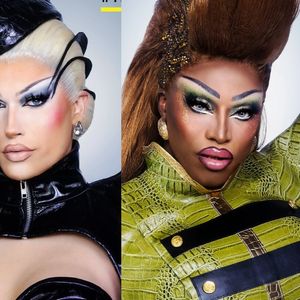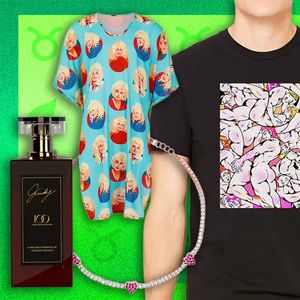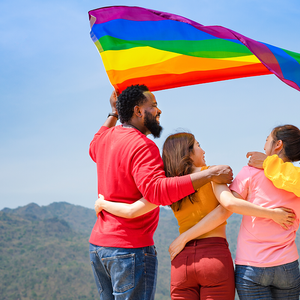Every day that 11-year-old Caine Smith goes to school (video below), he gets pushed around, punched, and called a fag just because he's a little shy, has long hair, and is being raised by two moms.
"[The bullies] just think that I'm really different and think that they can pick on me," Smith says. "They want me to change who I am. But I can't change who I am."
Smith has never really had friends willing to stick up for him. Most of his pals get bullied and called names too -- some of them have even begun bullying him just to avoid getting picked on themselves.
But after school, Smith has a secret way of calming down and clearing his mind -- playing games on his Nintendo Wii.
"Gaming actually really helps me a lot to calm down," Smith says. "It's like going into a different universe."
When he plays video games, Smith imagines a world where he can fly and do Harry Potter-style magic; a world where he can zip the lips of all the kids who call him names and finally be himself.
With the support of his two moms, Smith spoke out against bullying to local school officials. But he's not alone. Homophobic bullying pervades public schools. Half of kids with lesbian parents get harassed at school. Over time, the bullying hurts students' grades, their health and can even lead to suicide.
While it's not uncommon to find homophobic bullying in online gaming forums too, studies have proved that video games actually help kids alleviate stress.
And considering that a growing number of gamers have begun self-identifying as LGBT, it's safe to say that kids who experience anti-LGBT bullying are among those using games as a way to cope.
"I have been bullied quite a bit up until I reached the end of high school," says Matt Conn, cofounder of Gaymer X, an LBGT gaming conference happening this August in San Francisco. "I wished I could have just been myself and honest about being a queer geek. ... Games were my only escape for me. They allowed me to live in another world ... having a team with me as we stormed Booster's Castle in Super Mario RPG or defeating the evil Porky in Earthbound ... really was magical."
 Conn and cofounder Kayce Brown (pictured) started Gaymer X as a month-long Kickstarter campaign to raise $25,000 for the "first gaming and tech convention with a focus on LGBT geek culture." The campaign ended up raising $91,388 -- evidence that LGBT gamers wanted a place to connect and discuss their issues, a bullying-free place to play and games and gaming communities that reflect themselves.
Conn and cofounder Kayce Brown (pictured) started Gaymer X as a month-long Kickstarter campaign to raise $25,000 for the "first gaming and tech convention with a focus on LGBT geek culture." The campaign ended up raising $91,388 -- evidence that LGBT gamers wanted a place to connect and discuss their issues, a bullying-free place to play and games and gaming communities that reflect themselves.
Though Brown grew up in a conservative part of Arizona, she didn't endure as much bullying as Smith and Conn. Nevertheless, she says she's seen too many people struggling, living in fear and attempting suicide because of anti-LGBT phobia.
Women like Brown often get targeted with crude come-ons, sexist putdowns, and even death threats as part of their online gaming experience. When writer Anita Sarkeesian launched a video campaign to address misogyny in gaming, her YouTube channel got filled with sexist comments and her Wikipedia page got defaced with pornography and statements about her liking "gay fisting" and "homosexual penetration."
"I think GaymerX addresses the issue simply by our original mission that regardless of being queer, straight, bi, trans, whatever ... you have a safe space to escape and be yourself with us," Brown says. "We aren't out to set ourselves apart. Our tagline from the beginning has been 'Everyone Games,' and we truly mean that and want anyone and everyone to feel welcome and safe being exactly who they are."
Conn concurs: "I'm hoping that as young people see what we're doing with GaymerX, they can see that there is an entire world out there for them -- that they are not alone, that there are tens of thousands of openly queer geeks, and that being a queer geek is not 'weird' or abnormal.
"It may be a smaller group than your straight friends, but [it's] entitled to every right that they are. Feeling accepted, feeling wanted, feeling attractive, and feeling like part of a community."
Watch a documentary short about Caine Smith fighting homophobic bullying below:
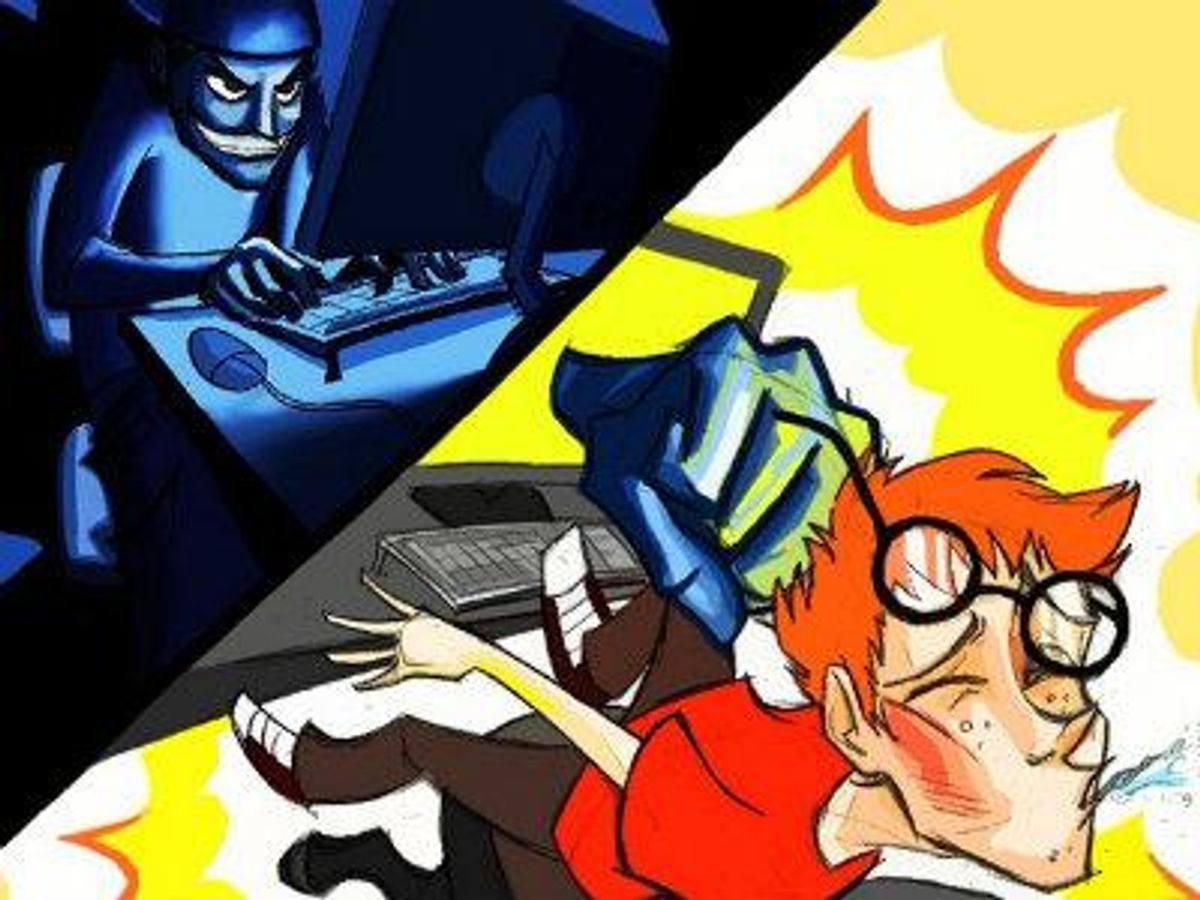

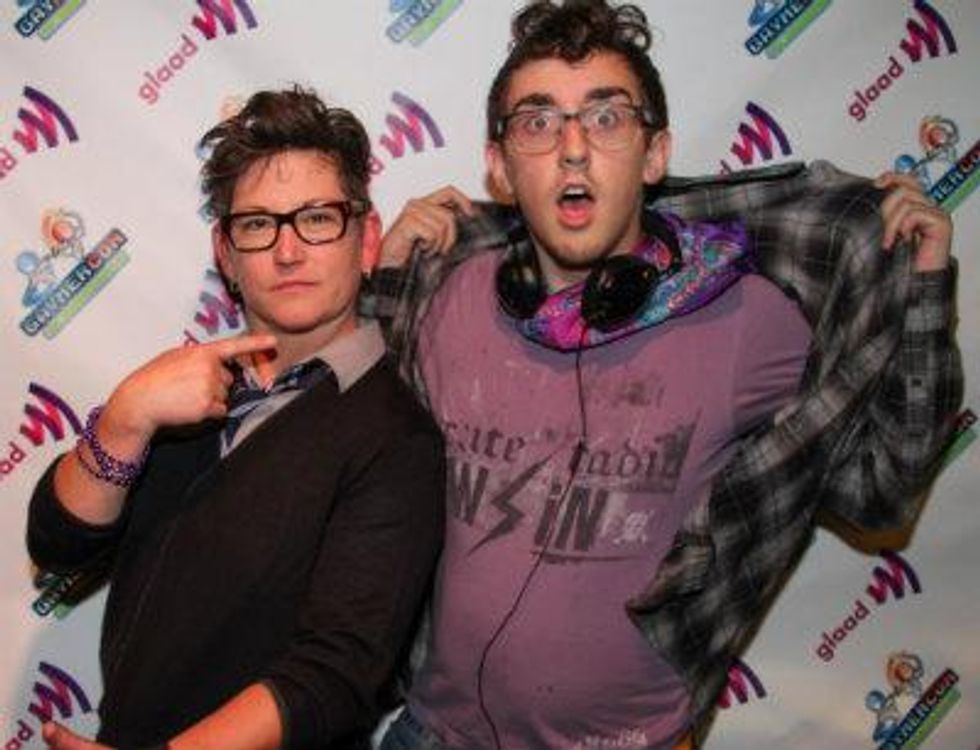 Conn and cofounder Kayce Brown (pictured) started Gaymer X as a month-long
Conn and cofounder Kayce Brown (pictured) started Gaymer X as a month-long 












































